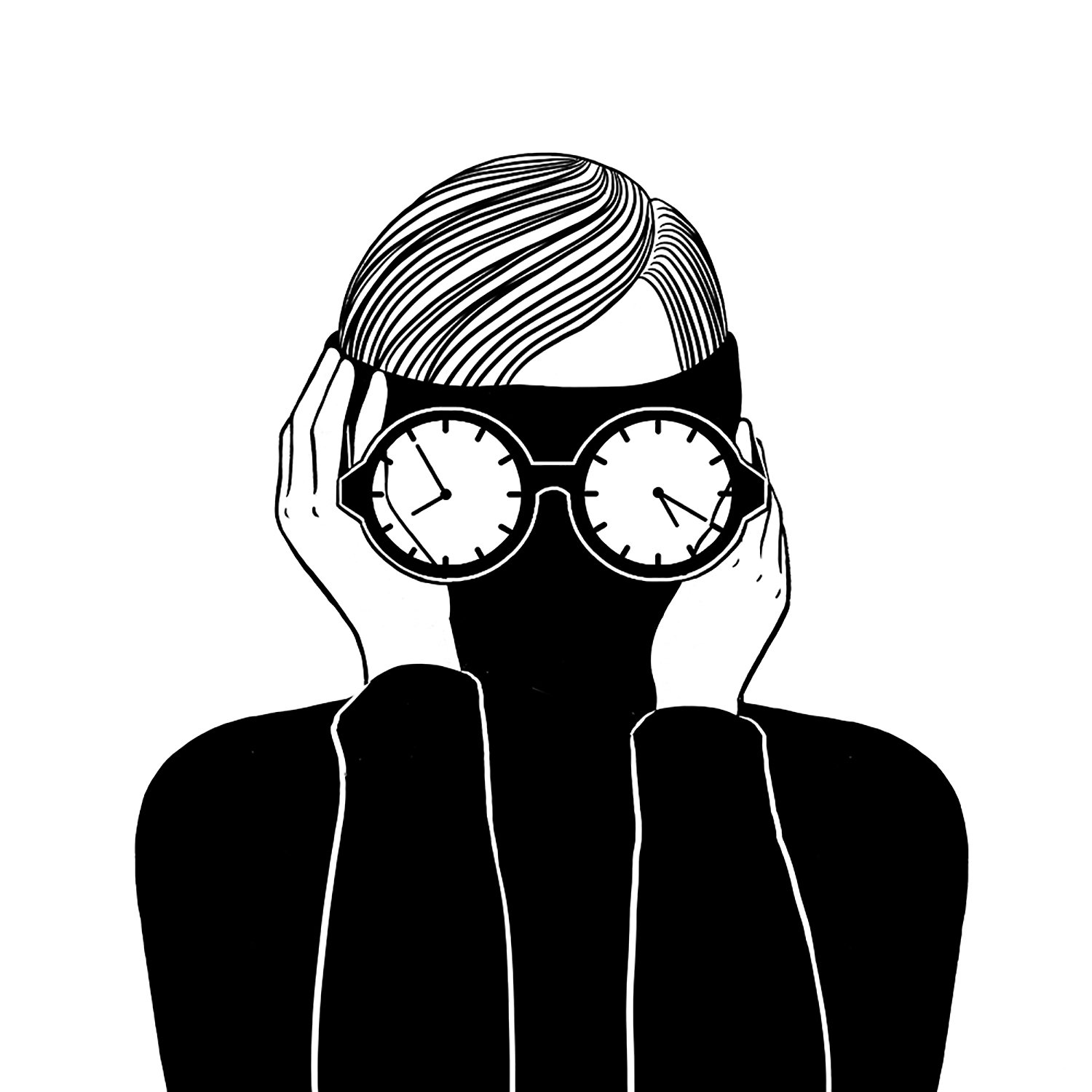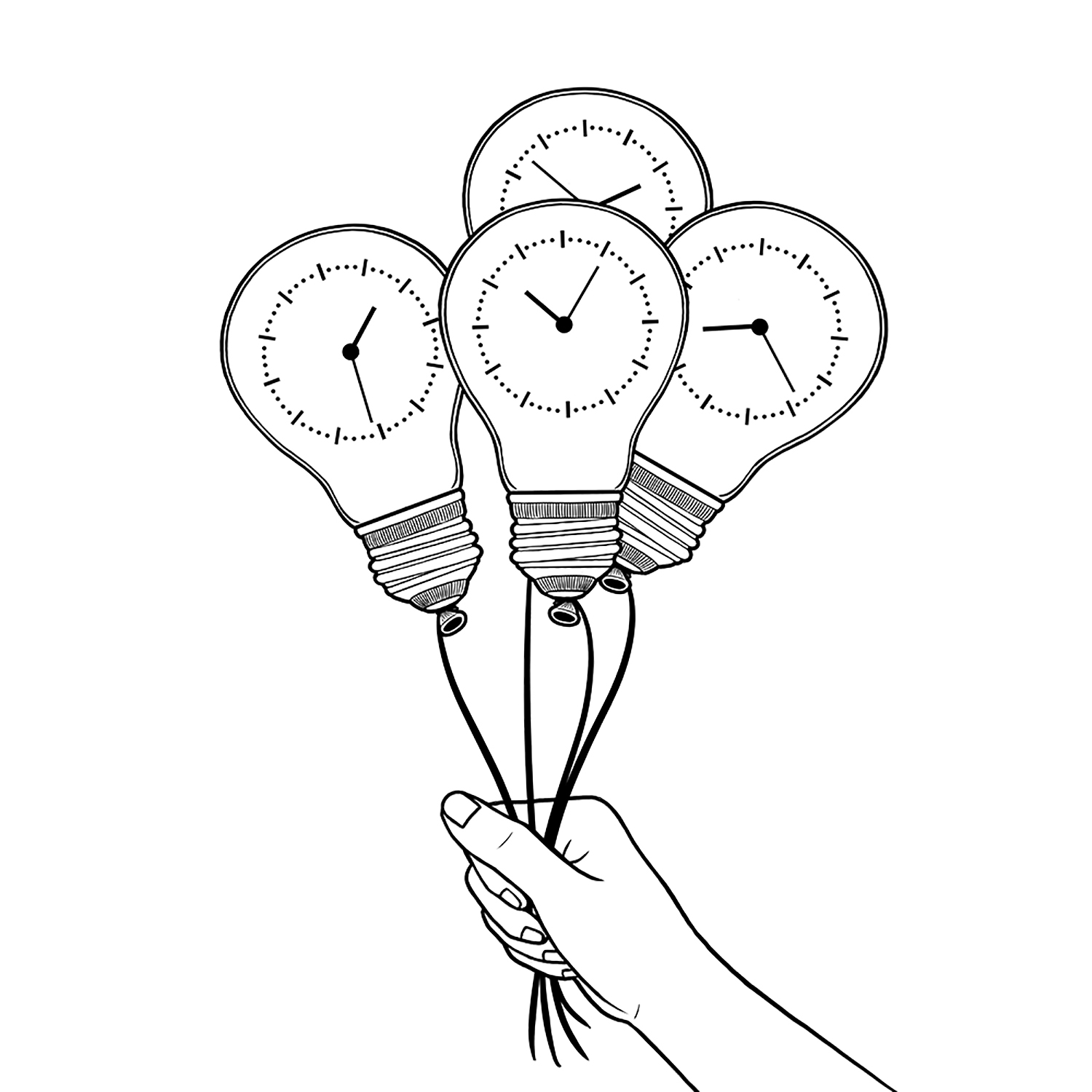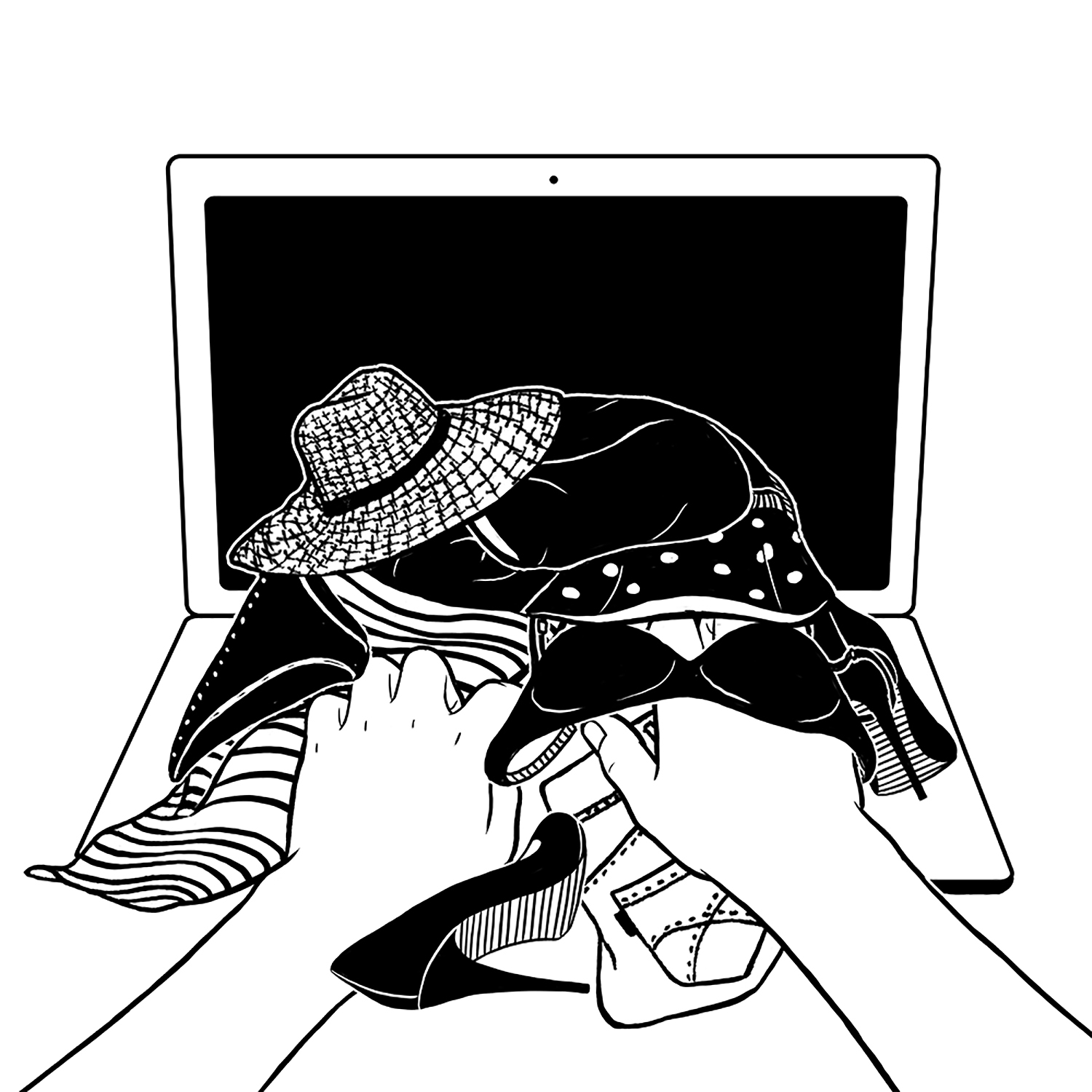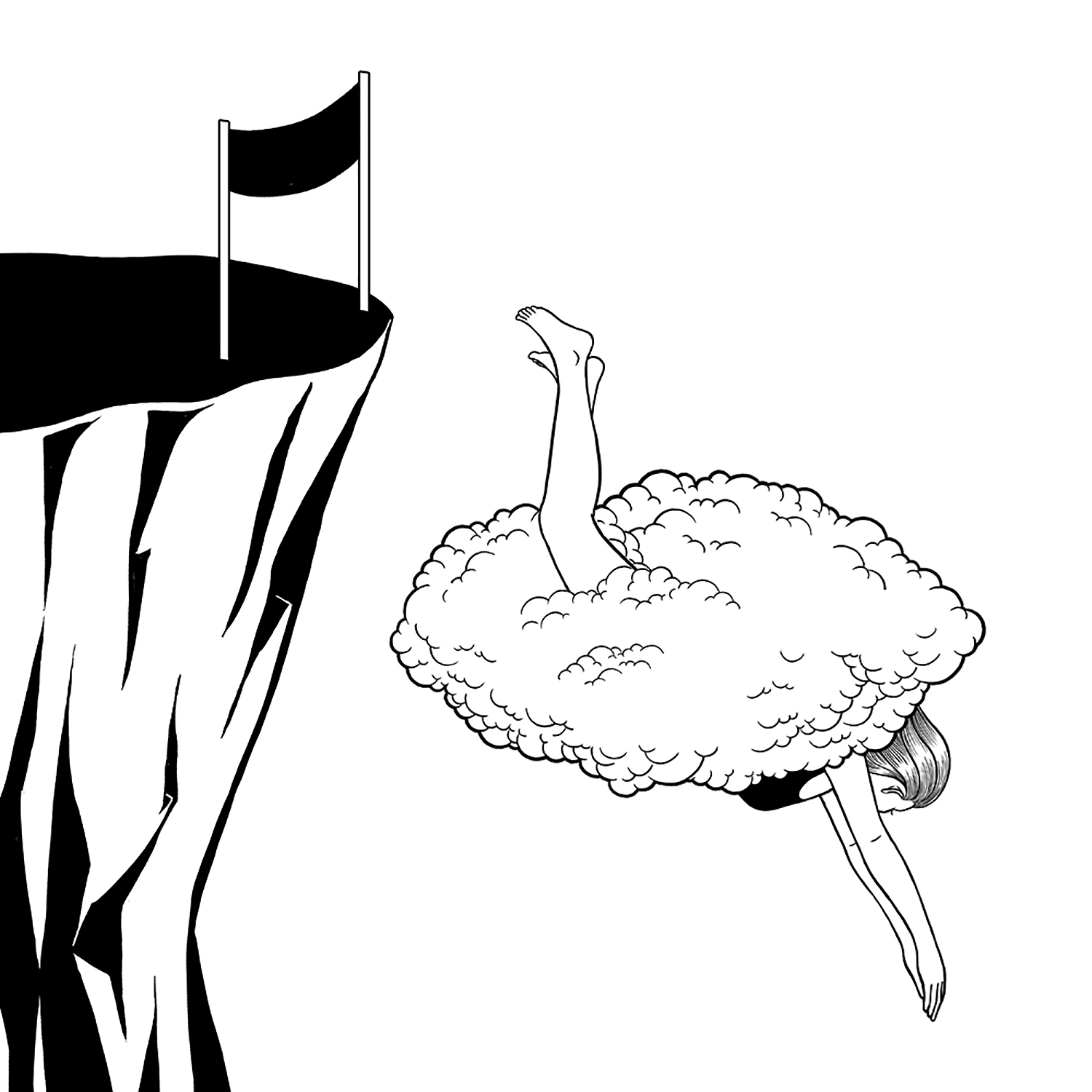Procrastination plagues us all, and that’s especially true for freelance artists. Should we embrace it as an essential part of the journey? Or should we put off thinking about it until tomorrow? We asked New York-based writer and former editor of The Hairpin, Haley Mlotek to take us through a journey into her own psyche as she wrestles with procrastination through a series of clocks, illustrated by Society6 artist, Henn Kim.
Last night I went to dinner with a group of friends: writers, actors, one musician and one poet, respectively. The poet posed a question to a group of us: had we ever felt like we had done enough? No, we instinctively responded, opposed to the idea even in theory. Enough, we said, ordering another drink, even though that thing was due tomorrow morning; never! No matter what day or time it was, we were late; no matter how much work had been accomplished, there was more to be done; no matter if our copy was clean, our ideas were solid, our research impeccable, we were a table of freelancers and as such our motivation was the constant reach for a goal we reflexively denied ourselves – finishing.
Procrastination is productivity’s natural predator, or so we’ve been told since elementary school assignments. But I’ve always secretly thought that procrastination was, in fact, just a series of step necessary to the never-enough process: the drive to complete projects that are always meant to be ongoing, or to declare our work as “enough” when we know the yawning void of all the better things we could’ve written/made/performed instead is going to always keep us awake at night.
I can berate myself for years about how slow I’m moving, how little I’m accomplishing, how many Twitter feeds I’m creeping. But every so often it occurs to me that it is not that I am so lazy (I am lazy) but that the freelancer mentality is one keeping time to a series of alarm clocks set by something too internal for me to have any control over. There’s a bunch of bells that go off in my head at certain times on the road to getting shit done, and if I could accept that smacking those hypothetical clocks at the times they go off instead of trying to reset them, I bet I would be a lot more fun at dinner parties, if not more productive.
My clocks have always followed a certain sequence and emit a certain direction telling me what it’s time to do. Fighting them is useless; they are in charge, and we can only pay attention when they go off. They are as follows:
1. The Panic Clock

You can summon this clock with enough foresight and self-loathing. This is the clock that goes off when you look at your list of deadlines, maybe, or when an editor emails you to “just check in” or when you’ve looked at your notes and realized that you are far dumber than you ever realized. This clock causes heart palpitations, a light film of sweat, and the other not-fun symptoms of physical arousal. The clock can be turned off by picking a fight with a loved one or by lying down with your eyes closed “to process.”
2. The Idea Clock

Sometimes it happens when you’re walking; sometimes you’re showering; sometimes you’re listening to someone else talk and you have to go wait shut up I just thought of something. Subway rides, waiting in lines, watching dancer rehearsal videos on YouTube: your good idea (or the idea that you think is good, a crucial distinction) is an alarm clock, in many respects, but it is more like a surprise party for your brain. Surprise! Look, a party full of ideas, and they’re all great! Gather up all the confetti and make rambling incoherent notes in your preferred iPhone app, but by all means, this is not the time to start working. Resist that idea. Trust that the party vibes will last forever, and that when the Work Clock goes off, you’ll be able to pull these ideas back again.
3. The Work Clock

You forgot your good idea. You’ve been sitting still for…hours. There is nothing to be done. It’s gone, like sands through the hourglass, or that sweater you swear you shoved in your tote bag before you left the bar. Type gibberish. Type insults directed at yourself. Read things written by people far smarter than yourself. Make to-do lists by hand, and populate them with things you’ve already done today just so you can cross them out. It feels so much like work! How could it not be?
4. The Everything-But-Your-Work Work Clock

Oh my god, this table is dusty. Your wardrobe is full of clothes you don’t wear anymore. There’s a crumpled receipt at the bottom of your purse; should you rethink the entire way you file your expenses? This is the clock that tells you its time to procrastinate by only doing smart, good, useless tasks. I mean: of course you should have a closet organized by season! Who am I to stop you from achieving the perfect rainbow-spine bookshelf? Just – does it have to be today? Oh, this alarm clock says it does? Ok. Carry on then. No, this deadline can definitely wait. Have you tried that thing where you do a liquid liner with Scotch tape? Better try that before getting back to work, just in case.
5. The Finished Clock

Also known as the amnesia clock. This clock goes off when you blinked and discovered a passable draft; something that could look complete to the untrained (read: not your) eyes. Half of this work seems like yours, but you can’t remember the physical act of making it. What year is it, you think, as the gentle hum of an alarm clock that soothes rather than startles goes off in your head. How long have I been out? Who am I?!?!?! None of that matters now. You might not be finished, ever, but today you’re done. Eff it, file it.
Need a little inspiration (cough) distraction? You can purchase Henn Kim’s Work Work Work art print here.
Comments